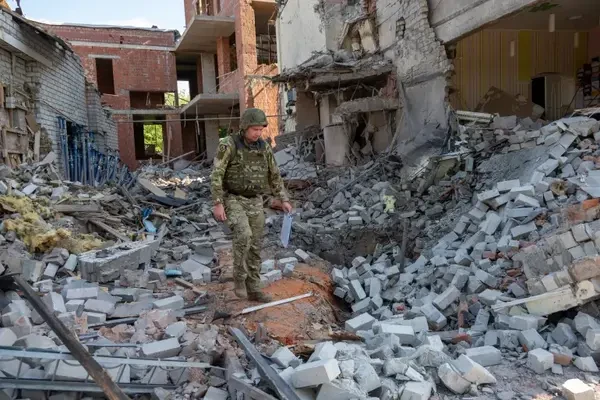Iran’s Plan to Strike Back Against the U.S.
Iran’s Military Preparations Following U.S. Attacks
Loading...

The legislation requires signatures from both the parliament's chairperson and President Zelenskyy to take effect as law.
The Ukrainian parliament has passed a significant bill permitting certain prisoners to enlist in the armed forces, responding to critical personnel shortages amidst ongoing Russian advancements on the battlefield. This decision, a notable reversal of Kyiv's previous stance, comes as the military grapples with manpower challenges.
The legislation, awaiting signatures from the parliament chairperson and President Volodymyr Zelenskyy, signifies a shift in Ukraine's approach. Previously opposed to the idea, Kyiv had criticized Moscow's reliance on prisoners for military purposes.
The bill, once signed into law, would allow specific categories of prisoners expressing a desire to defend their country to join the Defence Forces. Mobilization would be voluntary and restricted to certain prisoner categories, excluding those convicted of severe crimes such as sexual violence, multiple homicides, serious corruption, and former high-ranking officials.
Eligible prisoners, with less than three years remaining on their sentences, could apply for service. Notably, mobilized prisoners would be granted parole, rather than a pardon.
However, some organizations, like Protection for Prisoners of Ukraine, expressed disappointment with the adopted text, citing concerns of discrimination and potential abuse. There's apprehension regarding the creation of "special units" for mobilized soldiers, akin to reported practices of Russia's Wagner mercenary group, known for sending convicts into perilous missions.
Russia's recruitment of prisoners for frontline duty dates back to the initial stages of the invasion in February 2022. Initially offering presidential pardons for six months of service, this practice gained traction under figures like Yevgeny Prigozhin, who actively sought recruits from Russian prisons for the Wagner Group.
As the conflict persists, Ukraine faces the challenge of bolstering its military ranks to counter escalating Russian aggression. Recent measures include cracking down on draft dodgers and lowering the draft age to 25, reflecting the nation's urgent need for manpower.
Iran’s Military Preparations Following U.S. Attacks
Troops remain in five strategic locations, raising fears of renewed tensions and long-term occupation.
Opposition forces have taken control of the capital after a significant offensive. Here is how it unravelled.
